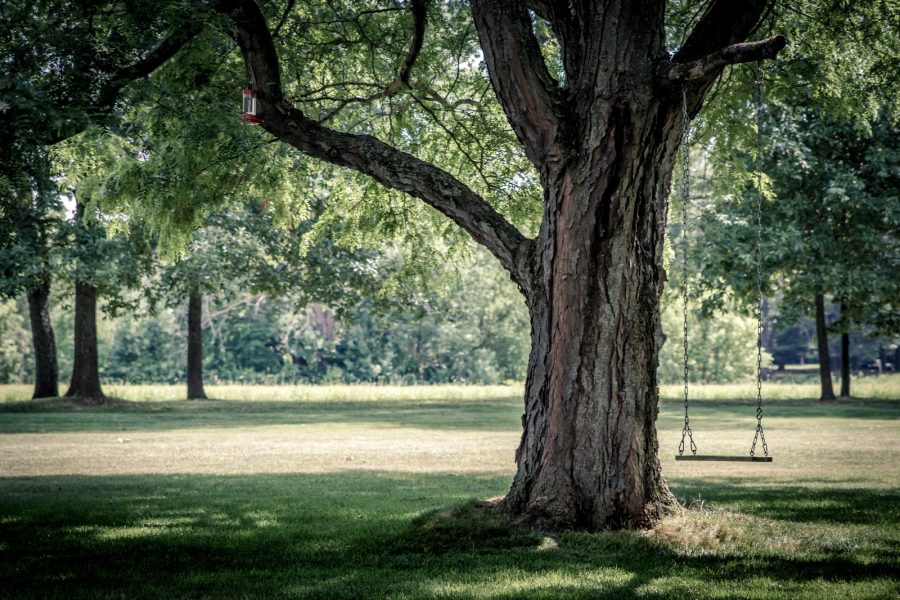It was mid-morning and the children, after recess, were returning to their seats at school. One of them, however, remained standing, staring out of the window, while the teacher repeated, in a tone of impatience: “Well, we are waiting for this little girl to sit down”. Then the little girl crushed her with all the weight of her reasons: “Haven’t you understood yet? I’m watching the ballet of the tree, look how it’s going this way and that, carried by the wind!
The ballet of the tree was certainly more beautiful to that child than the Spring Ballet, Swan Lake and other famous dances. She would be able to understand the poems of the Hindu religion, when they speak of the “dance of God”, the supreme dancer. The world, in its continuous evolution, the rolling of the days and nights, the miraculous opening of the plants, the deep roar of the oceans, all move to the rhythm of the divine. The ancient masters taught that good, truth and beauty are equivalent and that God himself is this trinity of fullness.
But today, we are losing the human capacity for awe and wonder, so much so that a grandiose yacht makes us vibrate less than a child’s paper boat.
We remember the sick, gluttonous, smoker who was brought a bouquet of flowers. “What are they good for,” he asked, “if they are not good for eating or smoking?
Today’s utilitarian and consumerist society wallows in the material, but suffocates for lack of the pure oxygen of enthusiasm, of awe, of the emotion of beauty. It then falls into the temptation to immolate beauty on the altar of an external sensuality, incapable as it is of capturing in someone’s limpid face an elevation, a dazzle, a shiver of enchantment.
This civilisation stems in part from Adam Smith and his pin factory, and even more from Karl Marx. Thanks to this Karl, whom Sartre called the “prince of the serious”, the world has lost the sense of the free, of playfulness; everything has to be, in order to be valuable, an instrument of production. To be productive or not to be productive – that is the problem – Mr Marx did intelligence no small harm! What a general deformation he unleashed!
What is the use of the Chapter Hall of the Monastery of Batalha, with its vaulted ceiling without central supports? Do we see much of that in Portugal and in Europe? What is the “Gioconda” for, if not to contemplate it on our knees, to feel the thrill of contact with the ineffable, the communion with the realm of tenderness, peace, lightness, balance? I ask if there is something more important than spiritual balance and if we do not all need to free ourselves from the everyday, to stretch the soul, to create wings and fly? What more could I expect from a Beethowen symphony than that sting that leads me to overcome mediocrity, to surpass myself, to want to be an eagle not a hen, a cathedral spire instead of a low bell tower, an Everest instead of a plain?
I am more and more convinced that one of the most urgent and decisive functions of any education and pedagogy is to awaken and develop the aesthetic sense, the magic of beauty. Beauty takes hold of the feelings, the heart, the spirit, and forges the harmonious personality. The teacher at the school where we started at the beginning understood this beautifully: she invited the children to admire the ballet of the tree and to listen to the comment of her little companion: “Look how it goes this way and that way, carried by the wind!
Educating in beauty is an indispensable condition for overcoming a culture of productivism and immediate consumption. It is also a preventive means to prevent the counterculture of violence from gaining a foothold. Nobody kills, when he sings or when he is holding hands. Pan, the musician god of Greek mythology, played the flute to tame the wild beasts. “Music is my good angel,” said Wagner.
The world would be a happier place if each of us would cultivate the artistic part of our soul and devote ourselves to gardening, poetry, painting or collecting this or that.
The noblest art, however, consists in trying to transform oneself into a masterpiece, and lovingly helping others to do the same. No one can resign himself to being a mass-produced product of modern society.
How good it would be to live well on earth if we savoured the ballet of the harvest and the waves and other “dances of God”! I fear that we will not accompany these rhythms and that the mountains, the rivers and the trees will censure us like the children in the Gospel: “We played the flute and you did not dance, we sang songs and you are fallen and mute…”.
Abílio Pina Ribeiro, cmf
(PHOTO: Ryan Hafey)






